Did you know play dough conducts electricity and can be used to make circuits?
Using play dough is a fun and very low cost way to learn about circuits and electricity. In our circuit we use a component called a Light Emitting Diode (LED). These are very easy and inexpensive to purchase from online stores or electronics shops. Light emitting diodes light up when electricity flows through them (like light bulbs). They only let electricity flow through them in one direction, so if you put them in the wrong way round, they won’t light up.
Our little activity show how you can make circuits of any shape you want using play dough.
Easy play dough circuits
Materials
Battery Pack:
Insulating play dough – make your own
Instructions
- First make your play dough. For the insulating ( non conducting )dough we used this recipe from Squishy Circuits.
- For the conductive dough we used a standard play dough recipe with salt. Or you can just use shop bought play dough.
- The next task is to test your doughs, set up a simple circuit like the one below and check the LED only lights up with the conductive play dough.

Then you can get a bit more adventurous.
You can see in this circuit the gaps in the conducting play dough are completed by the LEDs.
Remember current can only go through an LED one way….
Series Circuit
In this circuit below the LEDs are arranged in series. The positive leg of the LED is nearest the positive terminal of the battery (red lead). A battery pushes electricity around the circuit. It can only go through the LED one way (through the long leg and out the short leg) and we bridge the gaps with the LED. It then goes through the play dough to the next LED, again it has to be the right way round.
In a series circuit the electricity can only flow one way around the circuit.
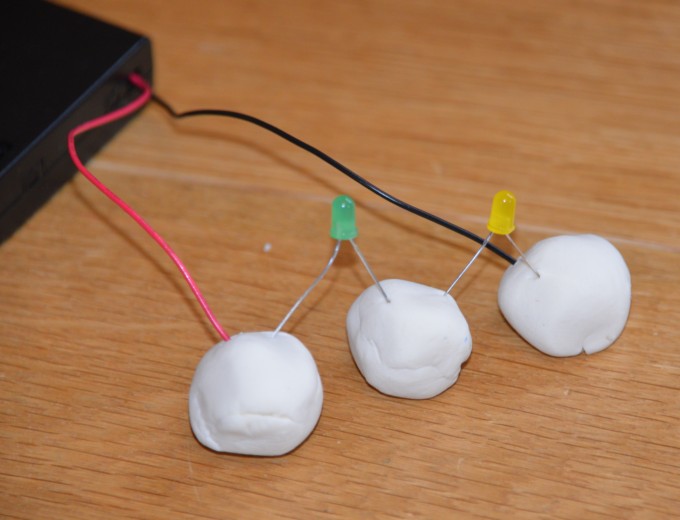
Parallel circuit
In the circuit below the LEDs are arranged in parallel. Electricity flows again through each of the LEDs completing the circuit. In a real circuit with more efficient wiring (play dough, while amazing is probably not the best way to carry electricity) you can see differences in how LEDs light up when comparing them in series and in parallel.
In a parallel circuit the electricity splits up and travels through the different branches of the circuit.
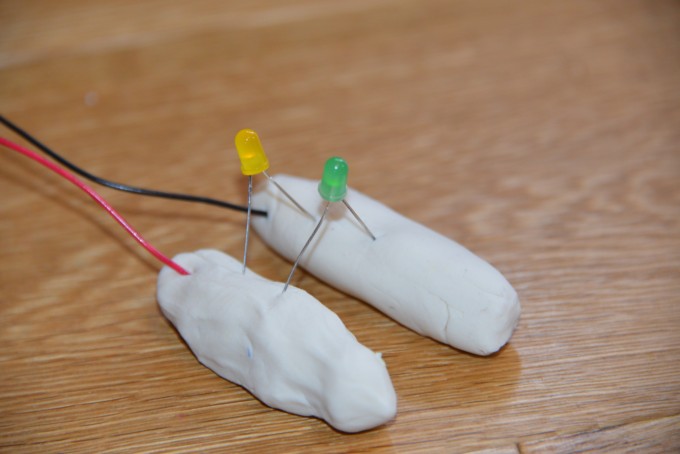
Fun shapes and play dough circuits
Next we experimented with different shapes. The middle layer in each of the shapes below is insulating dough which you need to allow the electricity to flow correctly around the circuit.
Another shape we made with our “sandwich” circuit.
This video shows how we made our sandwich circuits. We had to use a layer to insulate one of the legs from the other in the LED. This is a little bit like how the circuits in your electronic toys work, we call them circuit boards.
We’d love to see what shapes you can make!
More Play Dough Circuit Ideas
This light up play dough snowman is super cute!
I love this light up rainbow from Lemon Lime Adventures too!
Why does play dough conduct electricity?
Play-dough contains salt dissolved in water, which conducts electricity.
The insulating dough contains sugar which does not conduct electricity.
More electricity activities for kids
Make a simple cardboard circuit. This is a great way to demonstrate circuits to younger children and very neat.
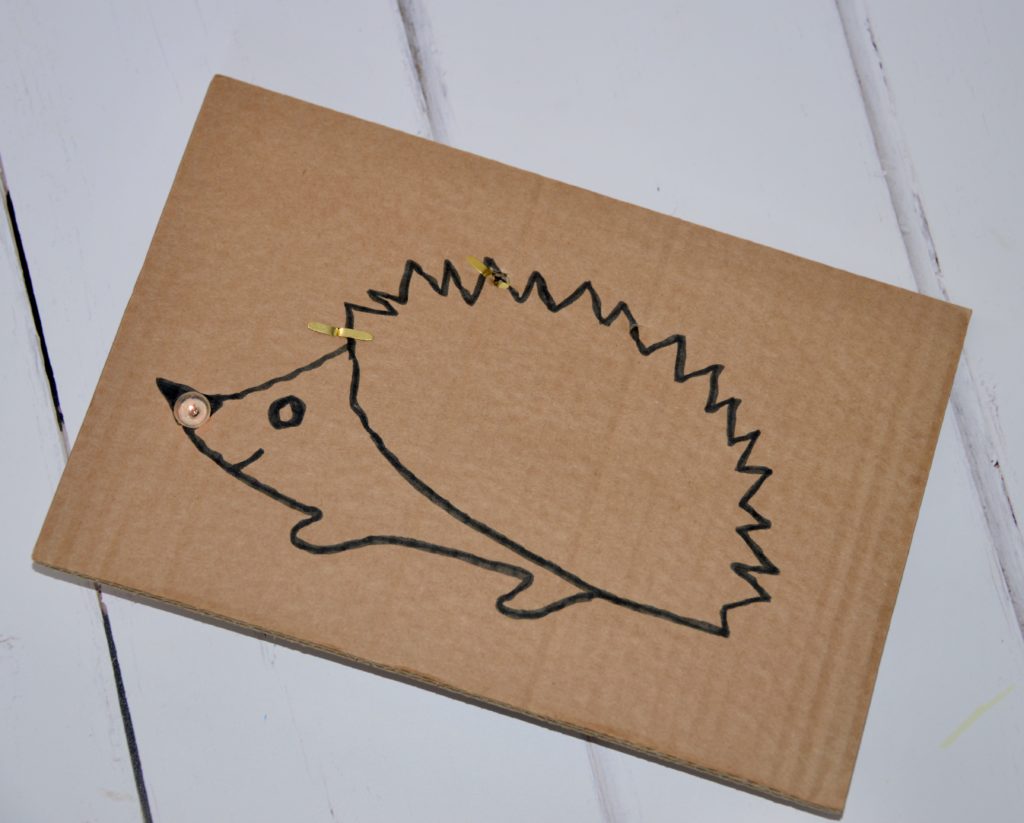
Draw a circuit with a graphite pencil. Did you know graphite conducts electricity?
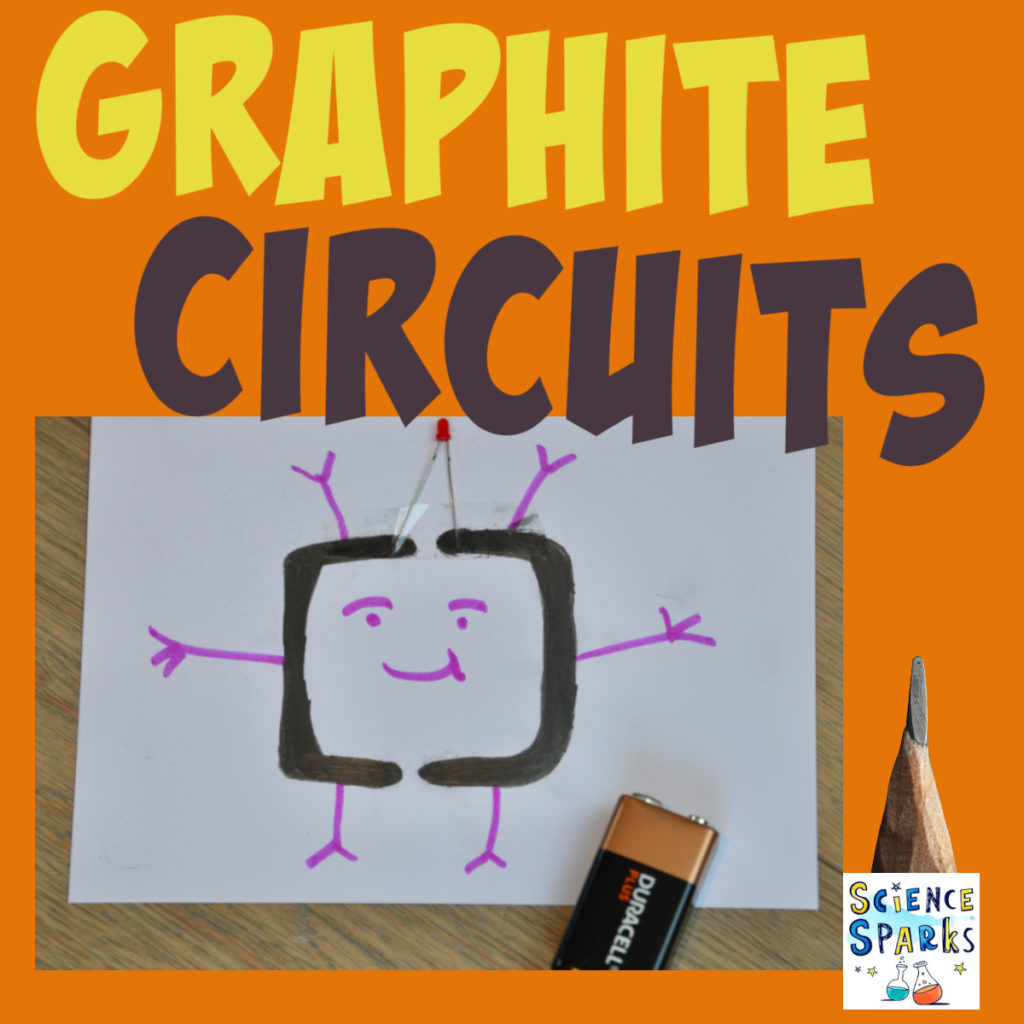
Or, how about using your new circuit skills to make a homemade torch?
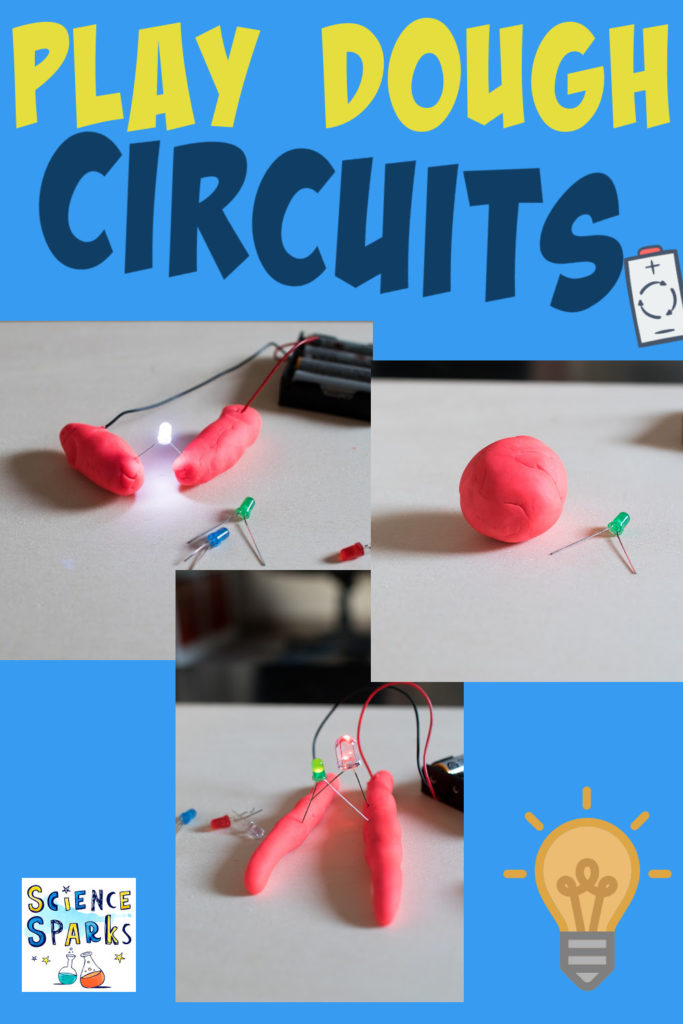
Contains affiliate links
Last Updated on September 10, 2022 by Emma Vanstone

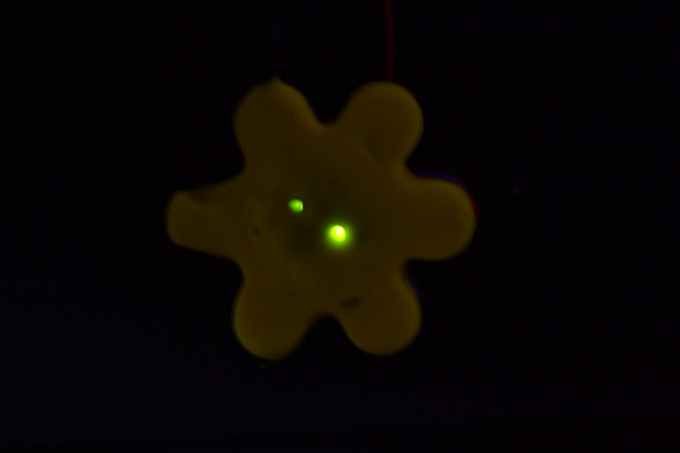
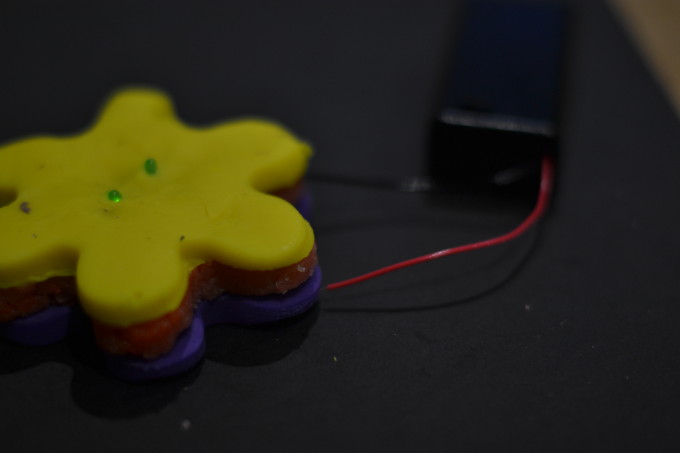

Very cool, Emma! What was the voltage on your battery pack?
Ha! The things you learn about play dough… It’s probably good that I didn’t know this when I was growing up 🙂
fuck ye all ye fools
ur shit
add me on psn cregan99